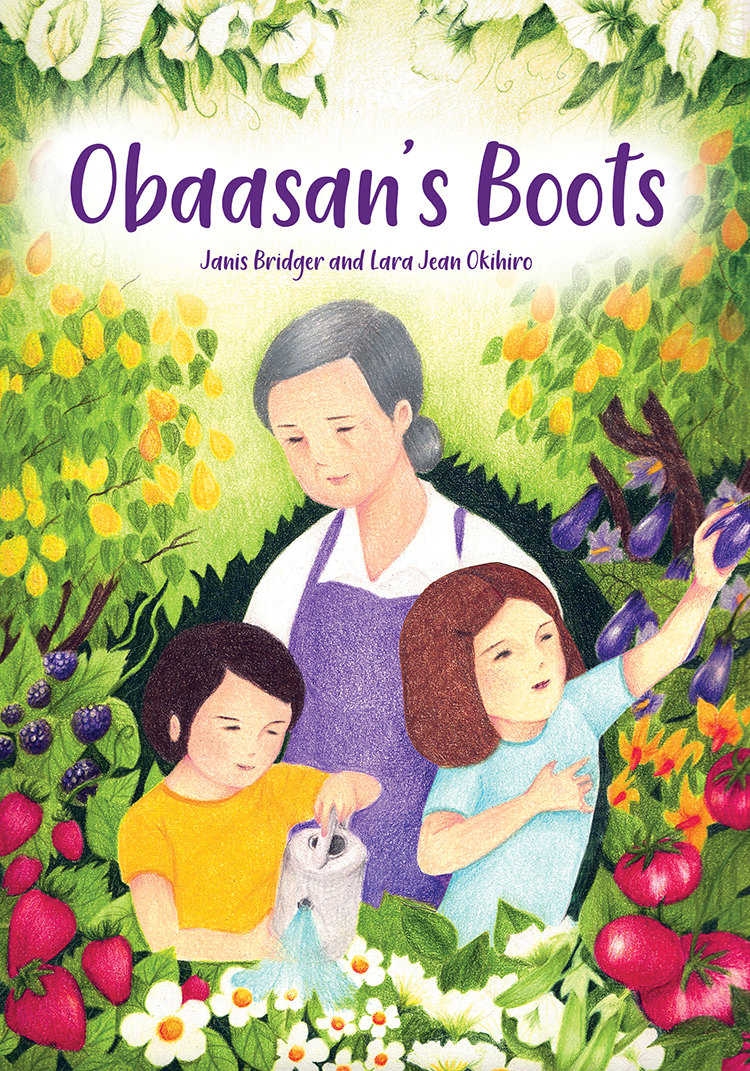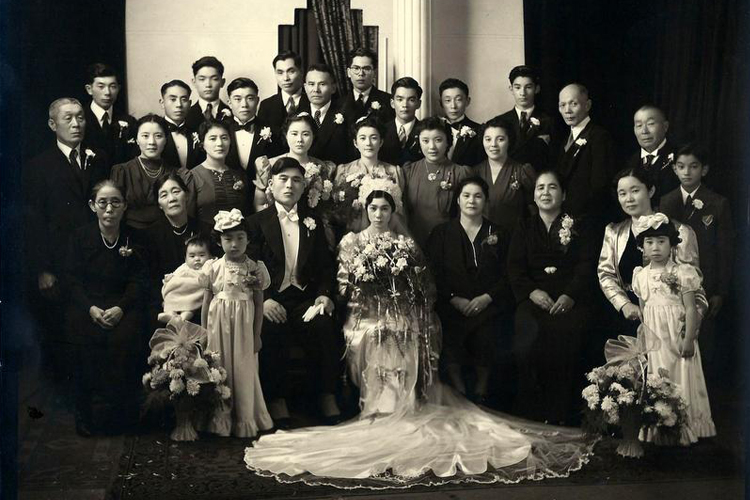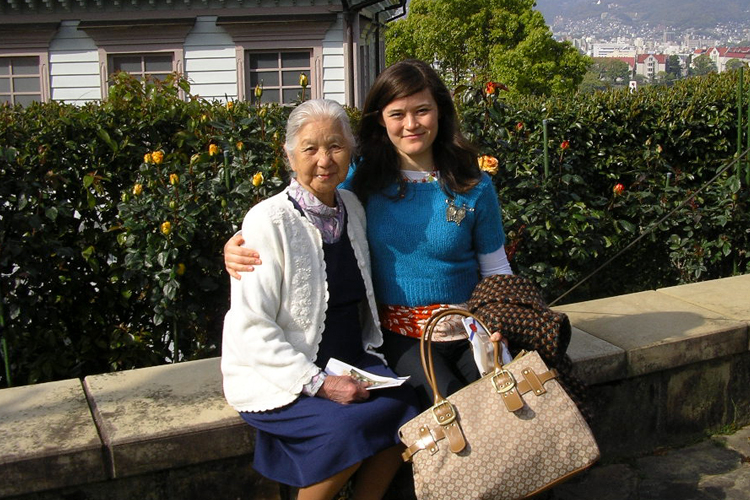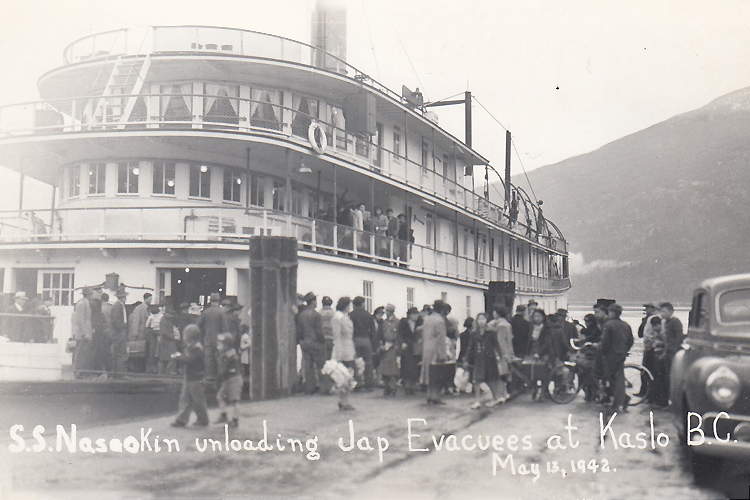Obaasan’s Boots is a powerful story that has waited more than 80 years to be told — since Arts & Science alum Lara Jean Okihiro’s grandparents were interned and lost everything in British Columbia as Japanese Canadians during the Second World War.
While the story has been an important part of her family history for decades, somewhat known but rarely discussed, Okihiro is finally sharing her obaasan’s — or grandmother’s — story with the world.
“I think it’s important to tell the story. Most people I speak to know little about the internment, which is part of the reason we wanted to write this book,” says Okihiro, who wrote the book with her cousin, Janis Bridger.
Obaasan’s Boots is set within a dark period of Canadian history. Today, Okihiro says the country seems to have largely forgotten that, shortly after the bombing of Pearl Harbor, Japanese Canadians were labeled “alien enemies,” even those born in Canada. Their movements were restricted through curfews. They were ostracized by white Canadian society and eventually relocated and incarcerated. Families were broken up and property confiscated and sold — all by the Canadian government in the name of national security.

“I think it's new for a lot of people, and it was certainly shocking for me to learn about it in high school when I read Joy Kogawa’s Obasan. I'd heard some of these stories but I didn't really know the extent of it or what exactly had happened. I thought, ‘This is heartbreaking. This is awful.’ It was a complicated experience to realize I knew nothing about this part of my history.”
When it finally came time to tell the story, Okihiro drew heavily from her U of T degrees to do so.
Her rigorous study of the Canadian novel naturally provided Okihiro, who earned her honours bachelor of arts in literary studies and psychoanalysis as a member of Victoria College in 2002 and her PhD in English in 2017 from U of T, with a strong foundation for writing the book.
But Okihiro says her studies in psychoanalysis and continental philosophy — learning from such professors as Julian Patrick, Victor Li and the late Mari Ruti — also played a crucial role.
“From these wonderful teachers and others, I not only learned to analyze texts and explore history deeply, but also that, in doing so, we are left with uncertainties that should continue to unsettle us, and that continue to do so especially for those of us inheriting these histories generations later,” says Okihiro.
“I gained an immense sense for how histories and historical trauma connect to our lives and connect us with each other in complex ways, begging us to ask questions for which there are never easy or singular answers.”
Okihiro had only dabbled in writing before coming to U of T. As one of the first in her family to attend university, she was simply hungry to learn, and the program's mix of psychoanalysis and English appealed to her.
Her family history still haunting her, she embraced the opportunity to examine themes of dispossession and loss during the Japanese Canadian internment in novels, concepts she felt were under-researched at the time. She explored these themes more deeply for her PhD thesis back at U of T.

“Lara's doctoral dissertation is an original contribution to the scholarship on the internment of Japanese Canadians during World War II,” says Li, associate professor (emeritus) in the Department of English and the Centre for Comparative Literature. Li was a member of Okihiro's doctoral dissertation committee and editor of the University of Toronto Quarterly in 2010, when Okihiro was hired as editorial assistant. “Her dissertation’s empathetic and detailed attention to the traumatic experience of dispossession — of the loss of personal objects — is clearly evident in Obaasan’s Boots.”
The novel also benefits from extensive research with her grandmother before she passed away in 2019. Over many years, Okihiro conducted research through casual chats and more formal interviews, even capturing some on video. Her aunt provided her grandmother with a notebook to collect her thoughts. When writing became too difficult for her grandmother, Okihiro helped take over the notetaking; later, Okihiro would sometimes find the notes scratched out or corrected by her grandmother.

The resulting novel has appealed to adults and children alike.
“I think it's great because it's not as intimidating a form for adults,” Okihiro says. “I think if we had completed an adult novel about the internment — a 400-page tome — adults would have been intimidated because they’d know the ending is, of course, going to be bad. They wouldn’t really want to pick it up. I found a lot of adults have been extremely receptive to this book.”
Previously, she has lectured and published internationally on literature, the Japanese Canadian internment, issues of racism and social justice, memory, trauma, and education — and even read her grandfather’s poetry with the Toronto Haiku Club for the Japanese Canadian Cultural Centre and Aga Khan Museum's Nuit Blanche 2023. She is now working on her next book, Lost Objects: Literature and the Dispossession of Incarcerated Nikkei, under contract with McGill-Queens.

After years of playing with words, writing short stories, scribbling poetry, coming up with songs for her kids and telling stories to keep them entertained, Okihiro is starting to feel differently about one thing.
“I never really thought of my creative writing as serious. It was just stuff I was doing on the side,” she says. “But now that I’ve written this novel, I see how it works, and that you just push it a bit further, and you find a publisher who is willing to work with you and you keep pushing it further. And now I think, ‘Oh, okay. Maybe I am a writer.”
For more information — including how to order the book and upcoming events — visit Lara Okihiro’s website.

